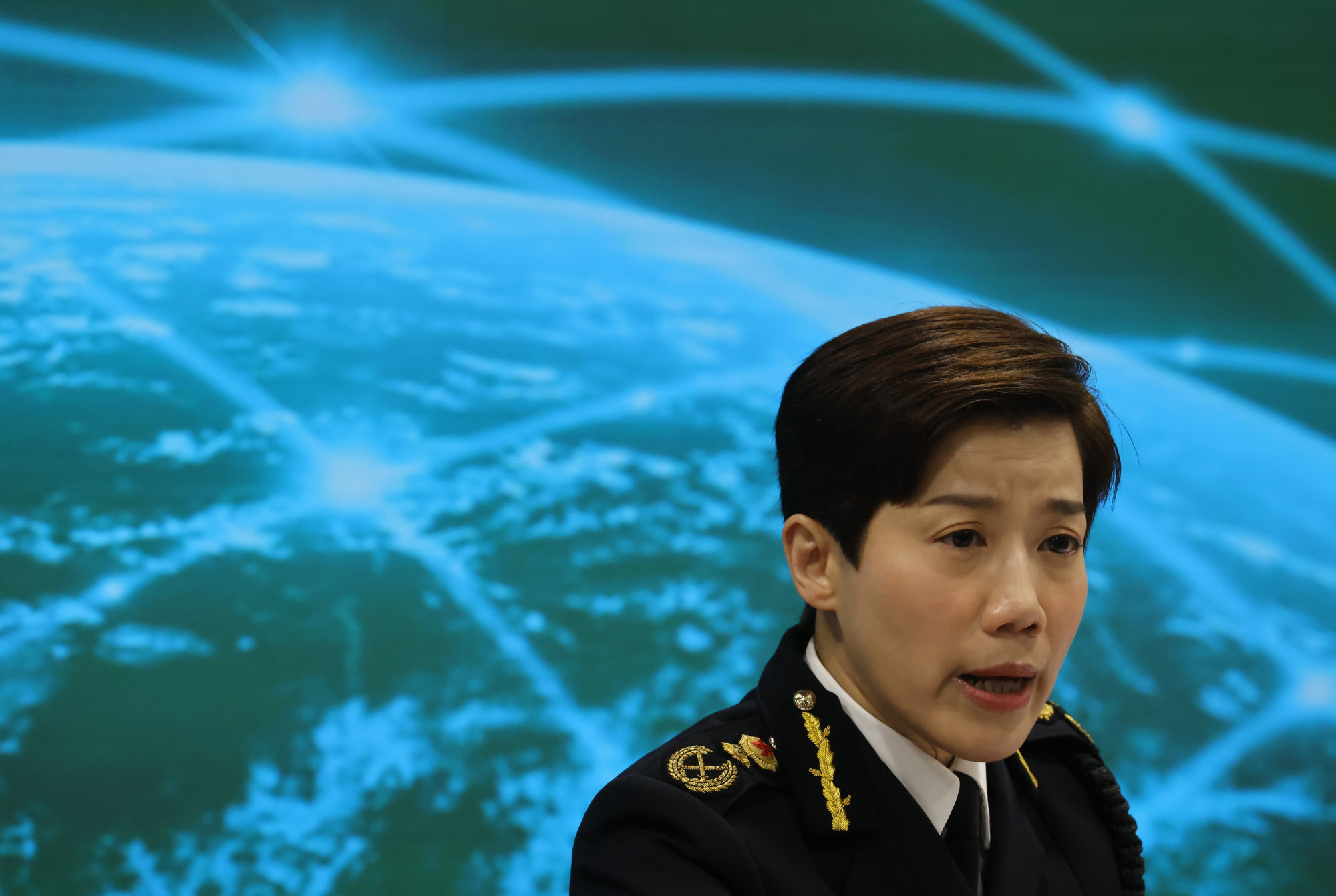
Hong Kong must address money-laundering risks for cryptocurrency changers in fixing regulatory gaps amid JPEX fallout, customs chief says
- Customs head Louise Ho stops short of saying whether her agency, which oversees other money changers, will be tasked with regulatory review of cryptocurrency shops
- She says her department has stepped up international cooperation in wake of fallout over alleged fraud centred on JPEX cryptocurrency platform
Louise Ho Pui-shan, commissioner of customs and excise, on Saturday also said it was ramping up international cooperation to crack down on money launderers taking advantage of the anonymity of cryptocurrency transactions.
Regular money changers in the city are under the purview of the Customs and Excise Department, but over-the-counter (OTC) cryptocurrency versions are not subject to any licensing or regulatory regime.
Owners of such stores were among the 28 people arrested by police in the alleged scam centred on the JPEX cryptocurrency exchange. Some OTCs had promoted JPEX’s investment offerings that were described by the Securities and Futures Commission as “too good to be true”.
Speaking on a television programme, Ho noted authorities and “relevant regulatory agencies” were reviewing governance options for the shops in the wake of fallout from the scandal.
“There are two aspects to [regulating] these OTC exchange shops. One aspect involves combating money laundering and terrorist financing and the other is investor protection,” she said.
“I believe that if this regulatory regime needs to be improved in future, both aspects must be taken into account.”
But Ho did not reveal whether her department was involved in the review, only saying there was “always room to improve the law enforcement and surveillance regime”.

She said customs had seen an increase of money-laundering cases involving cryptocurrency, which was especially prominent in large-scale schemes.
“Financial technology is becoming more mature, so we have observed increasing activity in virtual asset transactions, which can easily be used by criminals for money laundering as the transactions are more concealed and not restricted by time and location.”
Ho said her agency was stepping up cross-border collaboration as such activities involving the virtual assets were international in nature.
Hong Kong customs will sign a memorandum of cooperation with its counterpart in South Korea later this month to reinforce intelligence sharing and enforcement collaboration as part of the crackdown on money laundering.
Ho said the department would also promote international cooperation in tackling the crime as it was set to take over as vice-chair for the Asia-Pacific region at the World Customs Organization for a two-year period from July 2024.
Hong Kong police have received more than 2,500 complaints over the JPEX scandal involving more than HK$1.5 billion (US$191.7 million) in funds. The investigation is ongoing.
Blockchain analytics firm Bitrace reported last month that some of the Tether tokens processed in online wallets associated with JPEX have been “contaminated” as they were linked to money laundering and online gambling.

